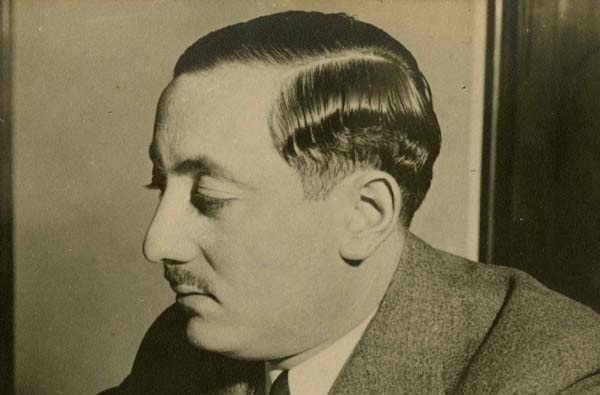
Rauh Jewish Archives at the Heinz History Center
Henry Ellenbogen (1900-1985) grew up in Vienna, Austria, where he attended high school and college. He studied at the Law Department of the University of Vienna for two and a half years before immigrating to Pittsburgh in 1921. He worked as an accountant for Kaufmann’s Department Store by day and attended Duquesne University Law School at night. In 1924, he graduated from law school and passed the Pennsylvania Bar Association examination with the highest marks ever received.
In 1927, Ellenbogen married Rachael “Rae” Savage (1903-1981), who had immigrated, at age two, to Baltimore, Maryland, from Poland with her parents, Nathan and Gertrude Savage, and her brother, Abe Savage. Her father was a Hebrew teacher, and the family moved to Columbus, Ohio, before settling in Pittsburgh, where he became the principal of the Hebrew school at B’nai Israel Congregation. “My father wanted to send me and Abe to school in Palestine, but my mother would not allow it,” she said in a 1974 oral history with the National Council of Jewish Women, Pittsburgh Section.
Henry Ellenbogen defended many liberal causes during his early legal career. He was a counselor for labor unions as well as for the American Civil Liberties Union. He gained attention in 1928 when he and the famed lawyer Clarence Darrow defended a group of coal miners against charges of inciting a riot, and in 1929 when he defended members of the University of Pittsburgh Liberal Club who had been expelled from the school.
This work brought Ellenbogen in contact with local Democratic Party Chairman David L. Lawrence. Ellenbogen became increasingly active in the party during the early years of the Great Depression. In 1931, he marched on Washington with Father James Cox to oppose the economic policies of the Hoover administration. “Ellenbogen appears to be the brains behind the guns,” Earl Lipsky of the Jewish Criterion wrote about the march.
Ellenbogen ran for the United States House of Representatives the following year, initially as an independent Republican before joining the Democratic Party ticket. “He campaigned vigorously,” Jacob Feldman wrote in The Jewish Experience in Western Pennsylvania, A History: 1755-1945. “Rather than giving orations before large audiences or chatting to individuals, he got small groups of people together to discuss their problems.” The strategy helped Ellenbogen fend off the Socialist Party and become the first Democrat elected to the 33rd Congressional District. His weekly visits to Pittsburgh to speak on radio station WJAS helped him win re-election in 1934 and 1936.
An important ally of President Franklin Delano Roosevelt, Ellenbogen either sponsored or promoted New Deal legislation to establish unemployment compensation, Social Security, affordable housing and interest-rate reductions for home mortgages programs.
Ellenbogen left Congress in January 1938 to become a judge on the Allegheny County Court of Common Pleas. “Congressmen’s wives were such hicks!” Rae Ellenbogen said in her oral history. “There was anti-Semitism in Washington, too. The New Deal was called the ‘Jew Deal.’ Henry could have been God knows what if he were not a Jew.”
Henry Ellenbogen was re-elected to 10-year terms on the court in 1947, 1957 and 1967, and only retired in January 1977 because of state-imposed age limits for justices. As a member of the Price Control Board and the National War Labor Board during World War II, he helped determine wages and working conditions for steel companies including U.S. Steel, Jones and Laughlin, and Crucible Steel. After becoming the presiding judge of the court in 1963, he pursued a number of reforms of the justice system, including reducing the backlog of untried cases, adding judges to the system, reducing the amount of paid vacation for judges, and computerizing court management systems.
In their communal work, Henry and Rae Ellenbogen were particularly active in Zionist causes. He was a president of the Pittsburgh Tri-State Council of the Jewish National Fund and the Pittsburgh Chapter of the Hebrew University of Jerusalem Association and a board member of the Zionist Organization of America. She was prominent in the local Hadassah and its Young Judea program and founded Chug Ivrit, the Pittsburgh branch of the Hebrew linguistic and cultural organization Histadrut Ivrit.
They had two daughters, Naomi and Judith.
